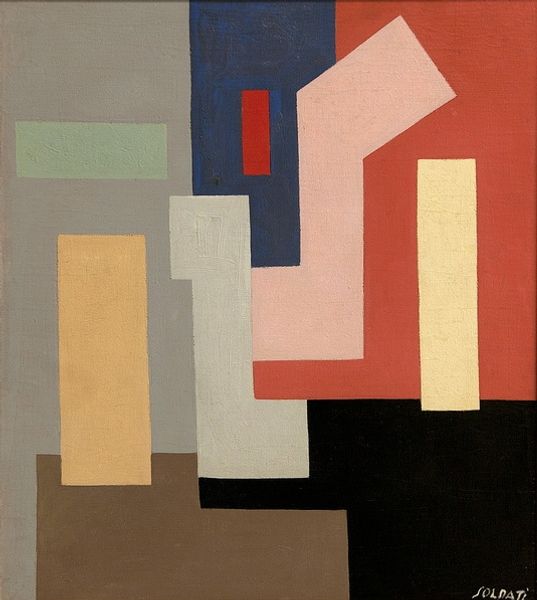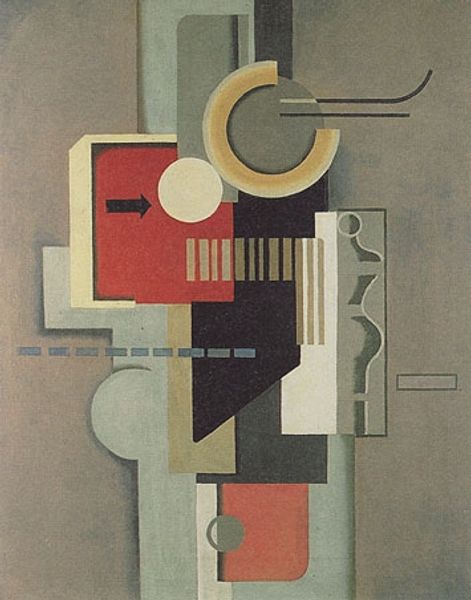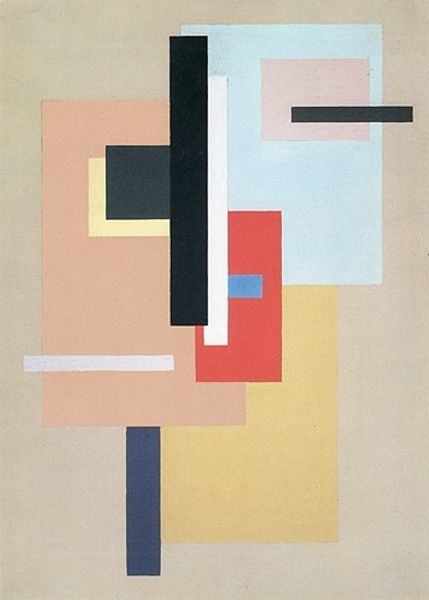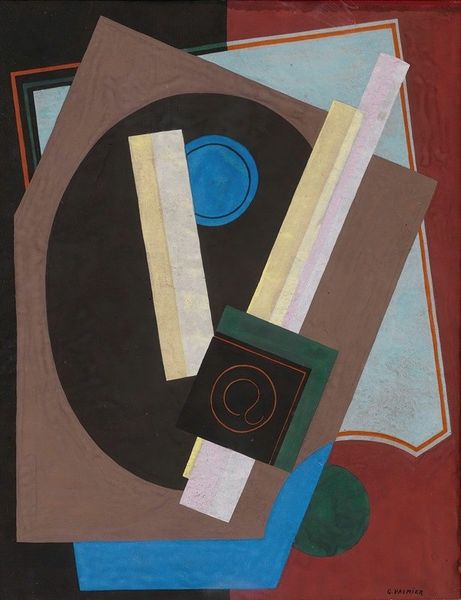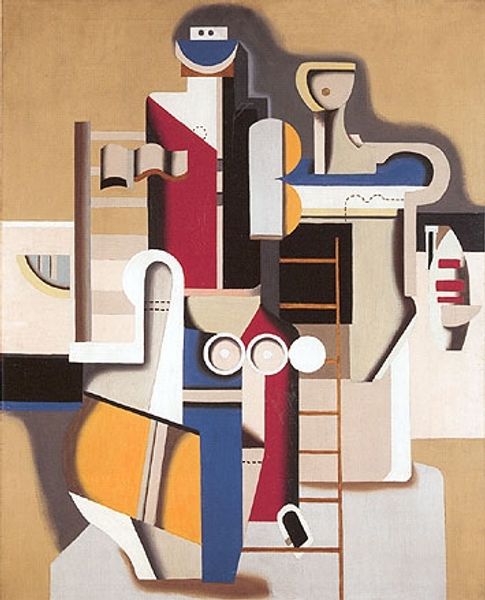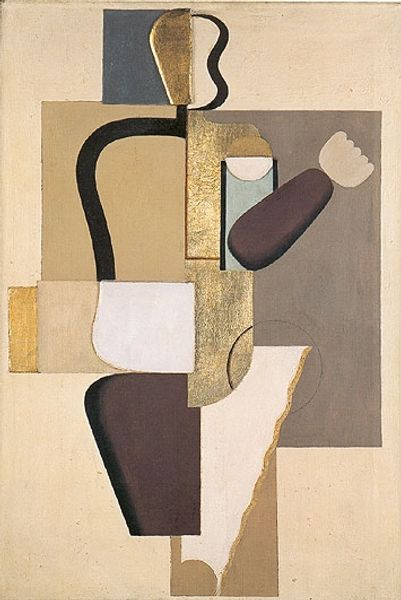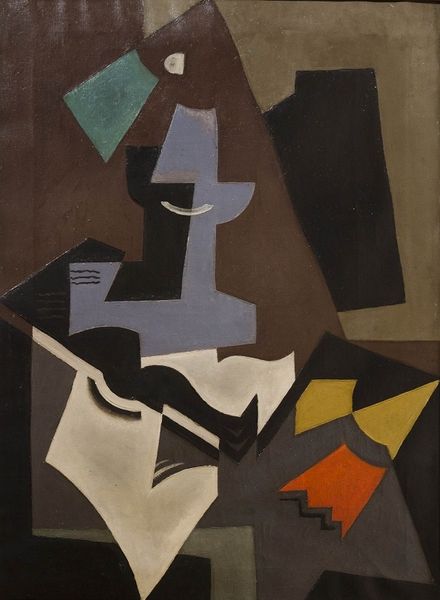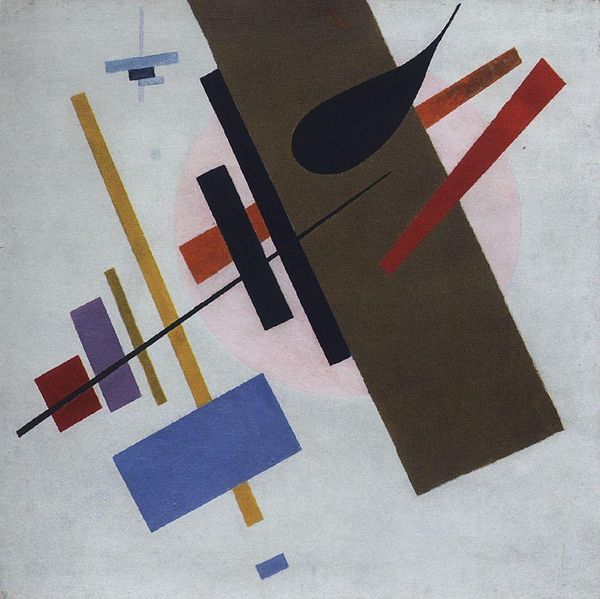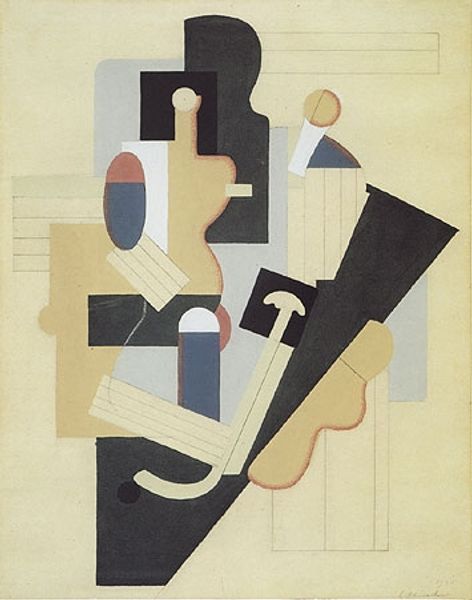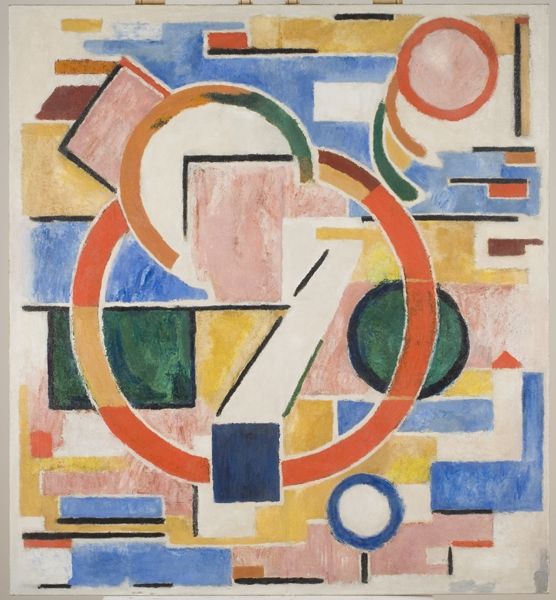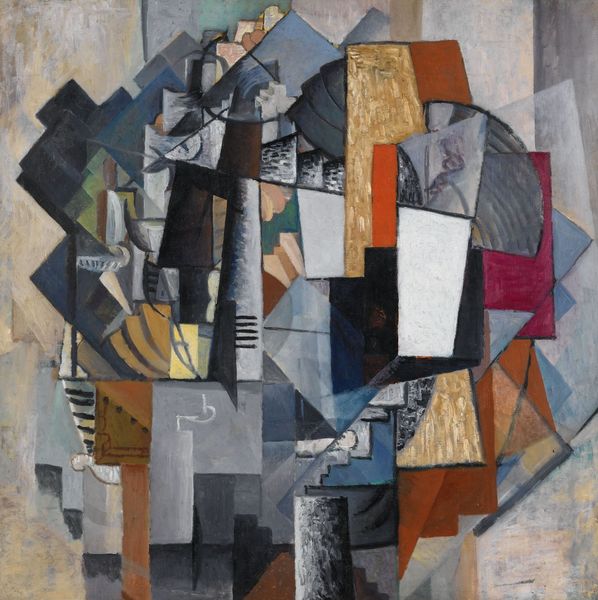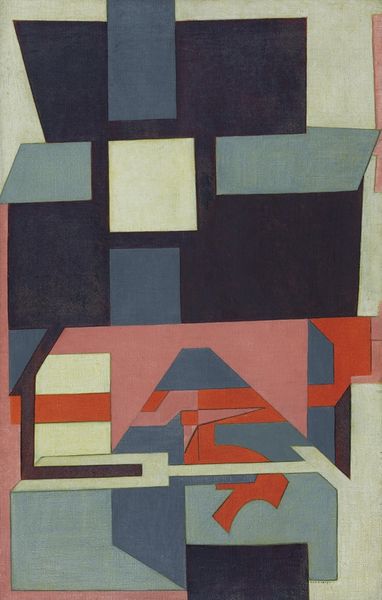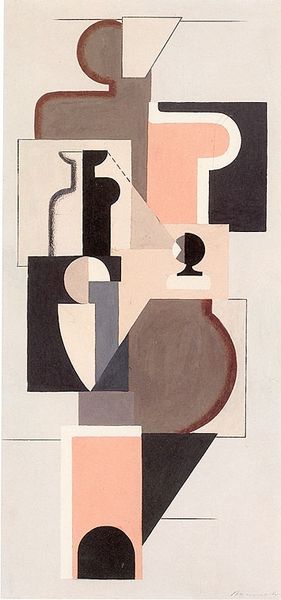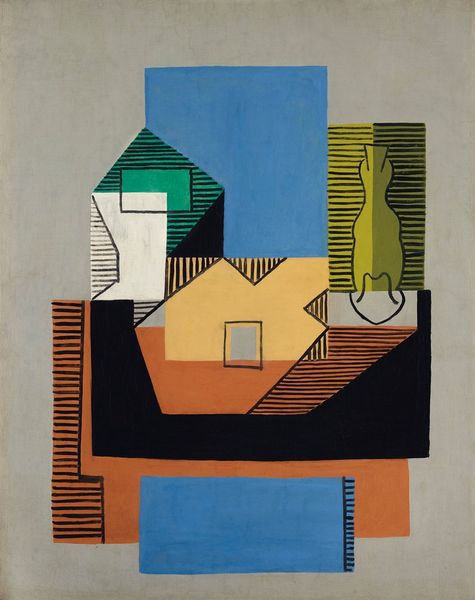
mixed-media, collage, paper
#
abstract-expressionism
#
cubism
#
mixed-media
#
collage
#
water colours
#
constructivism
#
paper
#
geometric
#
abstraction
#
modernism
#
watercolor
Copyright: Willi Baumeister,Fair Use
Curator: Welcome. Today, we're looking at "Abstrakte Komposition," or "Abstract Composition," a mixed-media collage by Willi Baumeister. Editor: It's immediately striking. The sharp angles and stark colours…there's something quite assertive about the work despite its small scale. It feels like a mechanical being, almost, with a limited palette giving it a sense of constraint. Curator: Exactly. Baumeister’s works from this period reflect the wider interwar climate—think about the rise of industry, but also the social anxieties brought about by these huge shifts. The use of geometric forms and collage elements are emblematic of the modernist pursuit of deconstruction and reassembly that followed the trauma of the First World War. Editor: So, we're talking about anxieties concerning technology and its impacts? Curator: In part. But there’s more at stake here than just technology. This composition seems like an effort to find stability, to arrange the fragments of lived experience. You know, the materials would have been gleaned from diverse sources, brought together to represent a moment of coherence and a broader search for balance within chaos. The construction, I think, implies so much about finding some form of control or order. Editor: But doesn't the flatness counteract any feeling of true order? The colours seem somewhat discordant as well. While constructivist in form, it's almost too unsettling to suggest true harmony. It’s almost a statement in visual form against societal and mechanical regimentation, an emotional resistance using the tools of modernity itself. Curator: I find the tension incredibly interesting. There's certainly a questioning of progress inherent in the image, yet there's also this unmistakable optimism typical of early modernism to move on, look forward, make new things. The tension suggests ambivalence; what modernity offers isn’t perfect, but it offers potential. And even using mixed media, scraps and fragments from life and the every day implies some potential of new construction through pre-existing materials. Editor: An optimism born of the avant-garde. I see your point. But ultimately, doesn’t it all depend on how these works are framed, contextualised within gallery spaces or cultural debates? Because that heavily affects how their messages are read. Curator: It does. And examining those exhibition histories can be a way of accessing forgotten critical responses. We can't take interpretation for granted. Editor: So true. Every new encounter is a chance to re-evaluate. Curator: Thank you for those perspectives; the interplay of viewpoints enhances our encounter with Baumeister's “Abstrakte Komposition” today.
Comments
No comments
Be the first to comment and join the conversation on the ultimate creative platform.
